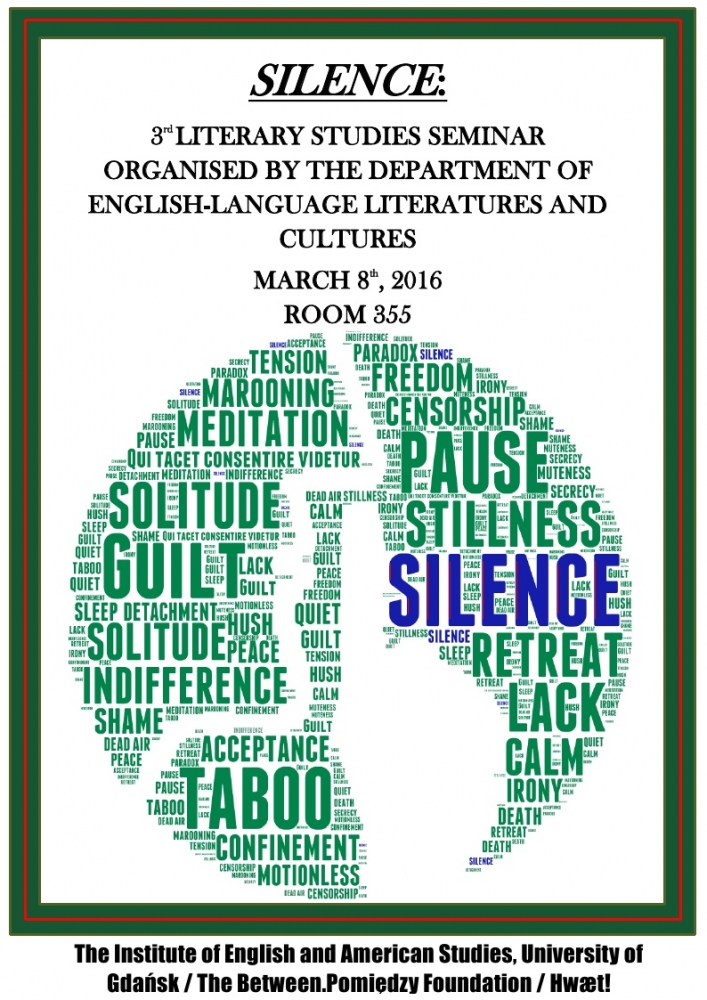Seminarium "Cisza: Seminarium Literaturoznawcze"/ "Silence: A Literary Studies Seminar"
Trzecie seminarium
"Cisza: Seminarium Literaturoznawcze"/ "Silence: A Literary Studies Seminar"
organizowane przez Katedrę Kultur i Literatur Anglojęzycznych
dotyczyć będzie tematu ciszy i jej wielorakich przejawów w literaturze anglojęzycznej,
a odbędzie się 8 marca 2016 r. w Instytucie Anglistyki i Amerykanistyki s. 355.

Cisza, często bardziej elastyczna i wymowna niż słowo, może przybierać różne kształty. Może na przykład być definiowana jako brak słyszalnych dźwięków, lecz jej definicja ulega znacznemu poszerzeniu, jeżeli rozważamy ją z perspektywy wewnętrznych przeżyć jednostki. Staje się ona wtedy także bardziej względna – mimo że są pewne zbieżności, to cisza wewnętrzna dla każdego będzie prawdopodobnie charakteryzować się czym innym. Rozróżniamy też ciszę, która jest wynikiem dobrowolnego wyboru dokonanego przez jednostkę, jak przyrzeczenie dotrzymania tajemnicy czy duchowe odosobnienie, oraz taką, która jest narzucana owej jednostce z zewnątrz, na przykład cenzura czy tematy tabu. Należy też wspomnieć o zmowie ciszy, która jest wynikiem tchórzostwa lub obojętnego podejścia do spraw, w której powinno się zabrać głos.
Ciszę można analizować nie tylko pod kątem jej obecności w treści dzieła literackiego, ale także w jego formie – może ona być zarówno środkiem do wyrażenia danej treści, jak i przedmiotem dyskusji. Pragniemy zaprosić Państwa do zgłębiania zagadnienia ciszy we wszystkich rodzajach literatury anglojęzycznej: w poezji, dramacie oraz prozie.
Silence: A Literary Studies Seminar




